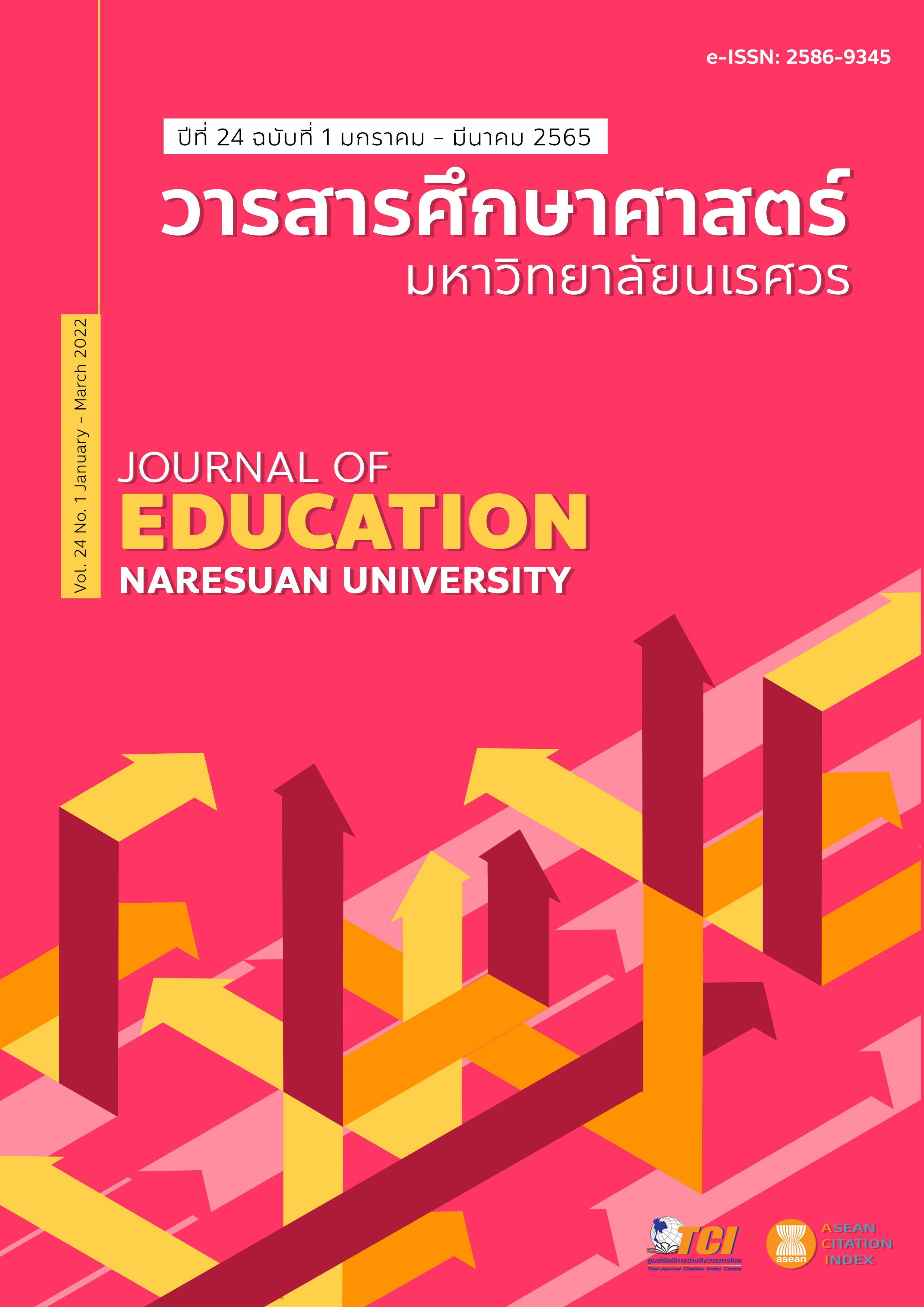THE DEVELOPMENT OF BLENDED LEARNING IN DHAMMA FOR MATHAYOMSUKSA 1 STUDENTS การพัฒนาการจัดการเรียนรู้แบบผสมผสาน เรื่อง หลักธรรมทางพระพุทธศาสนา สำหรับนักเรียนชั้นมัธยมศึกษาปีที่ 1
Main Article Content
Abstract
The purposes of the research were: 1) to develop the Blended Learning in Dhamma for MathayomSuksa 1 students and 2) to compare learning achievement of the students between pretest and posttest scores after learning with the Blended Learning in Dhamma 3) To find the effectiveness index of learning achievement before and after learning by using integrated learning management on Dhamma for MathayomSuksa 1 students. The samples were 40 students from Buddhachinaraj Pittaya School and selected by purposive sampling. The research instruments were the lesson plans, website in Dhamma and pretest-posttest. The data were statistical analyzed by percentage, mean, standard deviation and t-test dependent. The research findings were as follows:
1. Integrated learning management on Buddhism principles for students in for MathayomSuksa1 students is Blended Learning between face-to-face and online in a 70:30 ratio consisting of 1) The process of organizing teaching and learning activities, including; 1.1) Importing lessons, 1.2) Practice, 1.3) Training students, 1.4) Apply, and 1.5) Summarize. 2) The website about Buddhist principles. 3) The content consists of 4 topics; 3.1) Phrarattana Tri, 3.2) Buddha Khun, 3.3) Buddhism principles, and 3.4) Buddhism, proverbs, and blended learning about Buddhism principles for MathayomSuksa 1 studentsand, the efficiency (E1/E2) is 80.88/82.50 which meets the criteria of 80/80.
2. The learning achievement of MathayomSuksa 1 students learning by blended learning in Dhamma found that the scores after studying were higher than before learning at the statistical significance of .01 level.
3. The Efficiency Index (E.I.) of learning achievement before and after learning by using blended learning in Dhamma for MathayomSuksa 1 students is 0.6154.
Article Details

This work is licensed under a Creative Commons Attribution-NonCommercial-NoDerivatives 4.0 International License.
The owner of the article does not copy or violate any of its copyright. If any copyright infringement occurs or prosecution, in any case, the Editorial Board is not involved in all the rights to the owner of the article to be performed.
References
Chantape, W., & Tummata, T. (2011). The development of blended training model with team learning to develop competency in instructional design with interdisciplinary integration model for elementary school teachers. Silpakorn Educational Research Journal, 3(1), 135 - 149. [in Thai]
Khemmani, T. (2012). Science teaching: Knowledge for the learning process effective. Bangkok: Chulalongkorn University. [in Thai]
Khlaisang, J., & Koraneekit, P. (2009). Pedagogy-based hybrid learning: From concept to practice. Journal of Education, 38(1), 93-108. [in Thai]
Ministry of Education. (2008). Indicators and learning content central core for work learning Careers and technology B.E. 2551. Bangkok: Odeon Store. [in Thai]
Phanmanee, A. (1999). Education psychology. Bangkok: Ton Or 1999. [in Thai]
Phisitbanagon, N. (2006). The effect of learning experiences by discoveries on science process skills of preschool children by using mental and teaching activities (Master thesis). Songkhla: Prince of Songkla University. [in Thai]
Poommarin, C. (2007). The Development of web based blended learning on science: Geological age, fossils and stratigraphy for the high school students (Level of education). Bangkok: Silpakorn University. [in Thai]
Poon, J. (2012). Use of blended learning to enhance the student learning experience and engagement in property education. Property Management, 30(2), 129-156.
Rodniam, N. (2011). A development of blended learning model using research-based learning to encourage the scientific mind for undergraduate students (Doctoral dissertation). Phitsanulok: Naresuan University. [in Thai]
Rungcharoeankiat, T. (2014). Development of blended learning instructional model using 4 mat system to enhance analytical thinking ability of Rajabhat University students' multiple intelligences (Doctoral dissertation). Bangkok: Silpakorn University. [in Thai]
SLOAN-C. (2005). Growing by Degrees Online Education in the United States. The consent of the Sloan Consortium. USA: The Sloan Consortium (Sloan-C).
Tangchitsomkit, W. (1991). Education and being a Thai teacher. Bangkok: O.S. Printing House. [in Thai]


